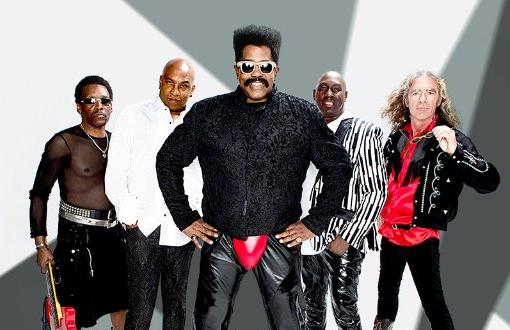
After passing the Senate and the House, it’s up to President Joe Biden to sign the Juneteenth bill. We’ll explain how the holiday got its start, what it signifies and how you can observe the day.
Congress on Wednesday passed legislation to make Juneteenth a federal holiday — the Senate approved the bill on Tuesday and the House followed suit on Wednesday. It’s now up to President Joe Biden to sign the bill to officially make it law. The June 19 holiday is recognized in 47 states, but only eight states consider it a paid holiday. Despite going back to 1865, Juneteenth gained significant national attention in 2020, after the deaths of George Floyd, Breonna Taylor, Ahmaud Arbery, Rayshard Brooks and others sparked Black Lives Matter protests against police brutality and systematic violence aimed at Black Americans.
Juneteenth — a portmanteau of the date it’s celebrated — marks the freedom of enslaved Black people in the US. It’s also known as Freedom Day or Jubilee Day. Observed by millions of Black Americans, it’s commemorated to some degree in nearly every US state. Major companies such as Spotify, Twitter and Lyft added Juneteenth to their calendars for the first time in 2020. Google made Juneteenth an official calendar holiday, too. (Apple’s calendar already noted it.)
A petition on Change.org last year jump-started the effort to make Juneteenth a national holiday. Some companies and organizations also give employees the day off to observe the holiday. Last year, entrepreneur Elon Musk said he would make Juneteenth a permanent US holiday for his companies Tesla and SpaceX, though not a paid day off.
Here’s what’s happening to make Juneteenth a federal holiday, the history of the day and how it’s observed.
What the Juneteenth Congress bill means
On Tuesday, just days before June 19, the Senate unanimously passed a bipartisan bill — called the Juneteenth National Independence Day Act — to make Juneteenth a legal public holiday. The bill moved to the House of Representatives and passed with a vote of 415-14. It’s now awaiting President Joe Biden’s final signature.
How did Juneteenth come to symbolize the end of Black enslavement?
Juneteenth commemorates June 19, 1865, when Maj. Gen. Gordon Granger arrived in Galveston, Texas and read a federal order abolishing the institution of slavery in the state:
“The people of Texas are informed that, in accordance with a proclamation from the Executive of the United States, all slaves are free. This involves an absolute equality of personal rights and rights of property between former masters and slaves, and the connection heretofore existing between them becomes that between employer and hired labor.”
The moment was significant. Texas had been the last of the Confederate states in which enslavement continued, despite President Abraham Lincoln’s Emancipation Proclamation to end slavery in 1863 and despite the end of the Civil War on April 9, 1865. Texas was the most remote state in the Confederacy, and it took Union forces until June to reach Texas in sufficient numbers to announce and enforce the federal order that ended slavery there. (The 13th Amendment, which added the abolishment of slavery to the Constitution, passed Congress in January 1865, but wasn’t ratified and adopted until December 1865.)
Since June 19, 1865, Americans have observed and celebrated Juneteenth as Emancipation Day, a day of freedom. In 1980, Texas began marking Juneteenth as an official state holiday, the first state to do so. Now, nearly all states commemorate or observe Juneteenth to some degree.
How is Juneteenth observed?
Some traditional ways to celebrate Juneteenth that you may still see today are rodeos, fishing, barbecuing and baseball, according to the Juneteenth website. A prayer service, speaker series, reading of the Emancipation Proclamation and dances are among other early Juneteenth celebrations, according to the Texas State Library and Archives Commission.
Which states have already made Juneteenth a paid holiday?
While many states celebrate Juneteenth as a holiday, these are the states that observe it as a paid holiday.
- Massachusetts
- New Jersey
- New York
- Oregon
- Pennsylvania
- Texas
- Virginia
- Washington
How can I celebrate Juneteenth in 2021?
Order food from a Black-owned restaurant: Support Black restaurant owners in your community by ordering food on Juneteenth and beyond — here are eight ways to find Black-owned restaurants where you live. Yelp and Uber Eats can help you find these restaurants on their apps.
Black lives matter. Support the cause these eight ways: From making donations to getting more involved in your local community, here are real ideas you can participate in to support the Black Lives Matter movement and antiracism, even from your living room.
Educate yourself and reflect: While slavery ended in 1865, racism persists in countless institutions. Use June 19 as a day to reflect on critical issues that perpetuate discrimination against Black people in America and around the world. Spend the day reading about Juneteenth’s history, including how Black families felt after being emancipated. Watch the documentary 13th on Netflix, or engage with other movies, shows, books and podcasts that can help reveal real-world, present-day issues.
Watch online Juneteenth events: Tune in to the virtual Juneteenth music festival or online celebrations and find a listing of local events where you live, like this one.
Place a sign in your front yard: Raise awareness and show your support for Juneteenth by decorating a sign for your front yard or door. This is a great way to help educate younger kids in your neighborhood who may not know about the holiday.
Celebrate with a barbecue or family meal: Gather your family together to celebrate freedom. Since the pandemic is still a serious concern, make sure you’re following your state’s guidelines for group gatherings (here are the Centers for Disease Control and Prevention’s guidelines). We recommend social distancing with people outside your household and the wearing of face maskswhen you aren’t actively eating.
Juneteenth only comes once a year, but there are more ways you can help your community all year long — for instance, supporting the Black Lives Matter movement.









